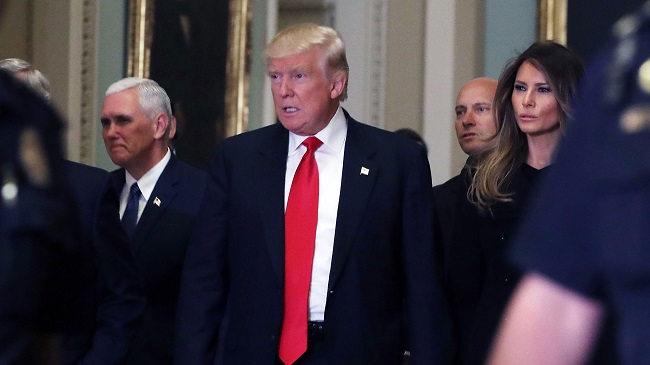
The White House isn’t the only revered institution President-elect Donald Trump will soon be infiltrating. Thanks to the Oxford English Dictionary’s annual “Word of the Year” pronouncement, Trump — whose bestselling Art of the Deal was ghostwritten by a writer who predicted his presidency “will lead to the end of civilization” — will enter the annals of written reference, albeit indirectly. That’s because 2016’s lexical highlight is “post-truth,” a popular coinage noted for its prevalence in recent reporting on Trump’s ascendancy and the Brexit vote in the United Kingdom.
As defined by the Oxford English Dictionary, “post-truth” is an adjective “relating to or denoting circumstances in which “objective facts are less influential in shaping public opinion than appeals to emotion and personal belief.” Per an official statement announcing the yearly honor, Oxford Dictionaries noted the word “has been in existence for the past decade” but cited “a spike in frequency this year in the context of the EU referendum in the United Kingdom and the presidential election in the United States” as evidence of its current worth.
Oxford Dictionaries President Casper Grathwohl suggests the term’s newfound spotlight was “fueled by the rise of social media as a news source and a growing distrust of facts offered up by the establishment.” In other words, post-truth owes its selection to the success of Brexit and Trump:
“We first saw the frequency really spike this year in June with buzz over the Brexit vote and again in July when Donald Trump secured the Republican presidential nomination. Given that usage of the term hasn’t shown any signs of slowing down, I wouldn’t be surprised if post-truth becomes one of the defining words of our time.”
Interestingly, one of several words indicated by this year’s shortlist is “alt-right,” the term used to designate the ultra-conservative facet of American politics populated by white nationalists and popularized by outlets like Breitbart News and its former top executive turned White House chief strategist, Steve Bannon.
Other, somewhat less depressing words that were shortlisted include:
- adulting: The practice of behaving in a way characteristic of a responsible adult, especially the accomplishment of mundane but necessary tasks.
- Brexiteer: A person who is in favour of the United Kingdom withdrawing from the European Union.
- coulrophobia: Extreme or irrational fear of clowns.
- glass cliff: Used with reference to a situation in which a woman or member of a minority group ascends to a leadership position in challenging circumstances where the risk of failure is high.
- woke: Alert to injustice in society, especially racism.
(Via Oxford Dictionary)
